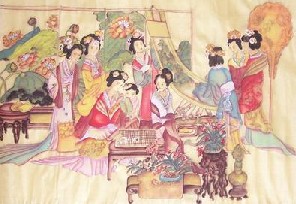The Wei and Jin Dynasties: Why do men sow their wild oats, and women pay the bill?
The idea that men sow their wild oats and women foot the bill seems incredible in today's world where it is often the reverse. However, more than a thousand years ago, during the Wei-Jin era, this dynamic was considered fashionable by society. Why were men so carefree and debonair? And why did women willingly pay the price? The reason lies directly with the Wei-Jin era’s admiration for handsome men.
As early as the Qin-Han period, the admiration for handsome men existed only within the upper echelons of society, where royal families and nobles kept male favorites and young boys, flaunting their beauty and wealth in extravagant ways. By the time of the Wei-Jin era and even into the Northern and Southern Dynasties, this trend had spread to the common folk, becoming a societal fashion trend. "Flaunting one's charm, indulging in sensuality," or even "men dressing as women" or seeking comfort through feminine appearances became commonplace. At that time, cross-dressing among men was extremely popular; notable figures such as He Yan, Wang Yi-fu, Pan An, Lord Pei, and Du Hongzhi were renowned for their good looks, skill in applying makeup, and their ability to mimic women convincingly. Wealthy families regarded keeping male companions and entertainers as symbols of their wealth. Shi Chong, the richest man of the Jin Dynasty, and his rival Wang Kai, an imperial relative, even used these male companions as stakes in their competitions for wealth and status, sometimes wagering hundreds of them at a time.
This historical context reveals how societal norms and values shaped gender roles and behaviors, particularly in terms of beauty, wealth, and power dynamics.
